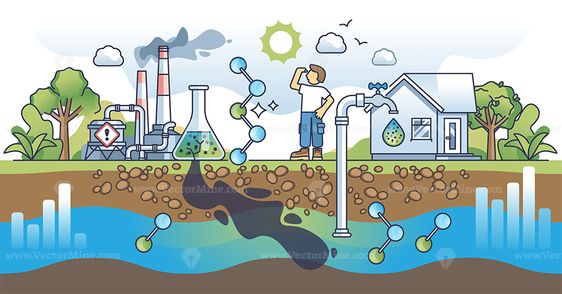Soil and water tests in construction are essential to ensure the suitability and stability of the ground and water conditions for building projects. Here's a detailed overview:
- Soil Testing

Soil testing involves evaluating the soil's physical and chemical properties to determine its suitability for construction. The main objectives are to assess soil strength, composition, and other characteristics that affect the stability of structures. Key tests include:
1. Soil Classification:
- Grain Size Distribution: Determines the proportions of sand, silt, and clay.
- Atterberg Limits: Measures the plasticity and liquidity of the soil.
2. Compaction Tests:
- Standard Proctor Test: Assesses the soil's optimal moisture content for maximum density.
- Modified Proctor Test: Similar to the Standard Proctor but uses higher compaction energy.
3. Moisture Content:
- Determines the amount of water present in the soil, crucial for compaction and strength analysis.
4. Shear Strength:
- Direct Shear Test: Measures the soil's ability to resist shear stress.
- Triaxial Shear Test: Determines the soil's strength under different confining pressures.
5. Consolidation Test:
- Evaluates the rate and magnitude of soil settlement under load.
6. California Bearing Ratio (CBR) Test:
- Measures the soil's bearing capacity and its suitability for use as a subgrade.
7. Permeability Test:
- Assesses how easily water can pass through the soil, crucial for drainage and foundation stabilit
| "Best Builders Floor Apartment in Chennai" |
- Water Testing
Water testing ensures that the water used in construction is suitable and does not adversely affect the concrete, masonry, or steel. Key tests include:
1. Chemical Analysis:
- pH Level: Ensures the water is neither too acidic nor too alkaline.
- Chloride Content: High chloride levels can cause corrosion of steel reinforcements.
- Sulphate Content: Excessive sulphates can weaken concrete.
- Alkalinity and Acidity: Determines the overall chemical balance of the water.
2. Total Dissolved Solids (TDS):
- Measures the concentration of dissolved substances in the water, which can affect the setting and strength of concrete.
3. Organic Matter:
- High levels of organic matter can affect the hydration process of cement.
4. Hardness:
- High levels of calcium and magnesium can affect the mixing and setting properties of concrete.
- Importance in Construction
- Foundation Design: Soil tests help in designing stable foundations by understanding the soil's bearing capacity and settlement characteristics.
- Material Selection: Both soil and water tests guide the selection of appropriate construction materials.
- Quality Control: Ensures that the materials used in construction, especially concrete, meet the required standards and specifications.
- Environmental Impact: Helps in assessing and mitigating potential environmental impacts, such as soil erosion and groundwater contamination.
soil and water testing are crucial steps in the construction process to ensure the durability, stability, and safety of the structures being built.
Also read: M SAND for Building Construction...
https://www.livehomes.in/blogs













